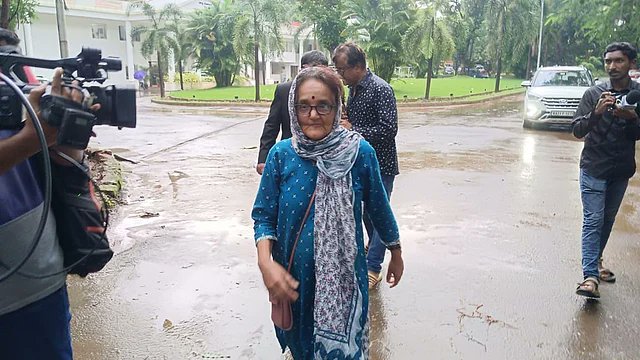Mangaluru, India, July 17, 2025 — A chilling mystery that has lingered for over two decades has exploded into public view as Sujatha Bhat, mother of missing MBBS student Ananya Bhat, filed a fresh complaint on July 15, 2025, demanding answers in her daughter’s 2003 disappearance in Dharmasthala, Karnataka. The renewed probe, now registered at Dharmasthala police station, coincides with shocking allegations of mass burials and systemic crimes in the temple town, fueling calls for a Special Investigation Team (SIT) to unravel a potential cover-up involving influential figures.
Ananya Bhat, an 18-year-old first-year medical student, vanished in May 2003 during a visit to Dharmasthala, a revered pilgrimage site in Dakshina Kannada district. According to her mother’s complaint, Ananya stayed behind to visit temples while her friends shopped, only to disappear without a trace. Sujatha, a retired CBI stenographer, alleges she was brutally assaulted—reportedly by temple staff—while searching for her daughter, an attack that left her in a coma for three months. Now, a whistleblower’s explosive testimony has reignited the case, claiming over 100 bodies, many showing signs of sexual assault and violence, were buried in and around Dharmasthala between 1995 and 2014.
In her petition to the Dakshina Kannada Superintendent of Police, Sujatha demands the recovery of her daughter’s remains for final rites, citing the whistleblower’s July 11, 2025, court deposition. The former sanitation worker, whose identity remains confidential, alleged he was coerced by powerful figures into disposing of bodies, including those of women bearing marks of abuse. Sujatha believes Ananya may be among the victims, a suspicion bolstered by local accounts of a young woman matching her description being seen with temple staff before she vanished.
The allegations have triggered widespread outrage, drawing parallels to the unresolved 2012 Sowjanya rape-murder case in the same region. The Karnataka State Commission for Women, led by Chairperson Nagalakshmi Chowdhury, has pressed Chief Minister Siddaramaiah for an SIT probe into disappearances, unnatural deaths, and sexual assaults in Dharmasthala over the past two decades. Legal advocates, including former Karnataka State Commission for Backward Classes Chairman C.S. Dwarakanath, have demanded a judicially monitored investigation by a sitting or retired Supreme Court or High Court judge.
Sujatha’s complaint recounts her 2003 ordeal, including an alleged assault that silenced her initial inquiries. “I was beaten and left for dead when I asked questions,” she told reporters in Mangaluru. “For 20 years, I lived in fear, but now I want closure. If my daughter’s remains are found, I can finally lay her to rest.” The Dharmasthala police registered an FIR on July 4, 2025, under Section 211(a) of the Bharatiya Nyaya Sanhita, following the whistleblower’s submission of skeletal remains to a Belthangady court. However, delays in exhumation efforts have sparked accusations of police inaction, with advocates Dheeraj S.J. and Ananya Gowda criticizing the investigation’s pace and media leaks that may jeopardize evidence.
The scandal has ignited a firestorm on social media, with hashtags like #DharmasthalaHorror and #JusticeForAnanya trending across platforms. The Social Democratic Party of India (SDPI) has announced statewide protests, demanding accountability. The Dharmasthala Gram Panchayat, however, denies any wrongdoing, insisting that records of unclaimed burials since the 1980s are intact and transparent.
As pressure mounts for a thorough investigation, the Dharmasthala case threatens to expose a dark underbelly of crime and concealment in one of India’s holiest sites. For Sujatha Bhat, the fight for truth is a deeply personal crusade to reclaim her daughter’s memory from a town shrouded in secrets.





































